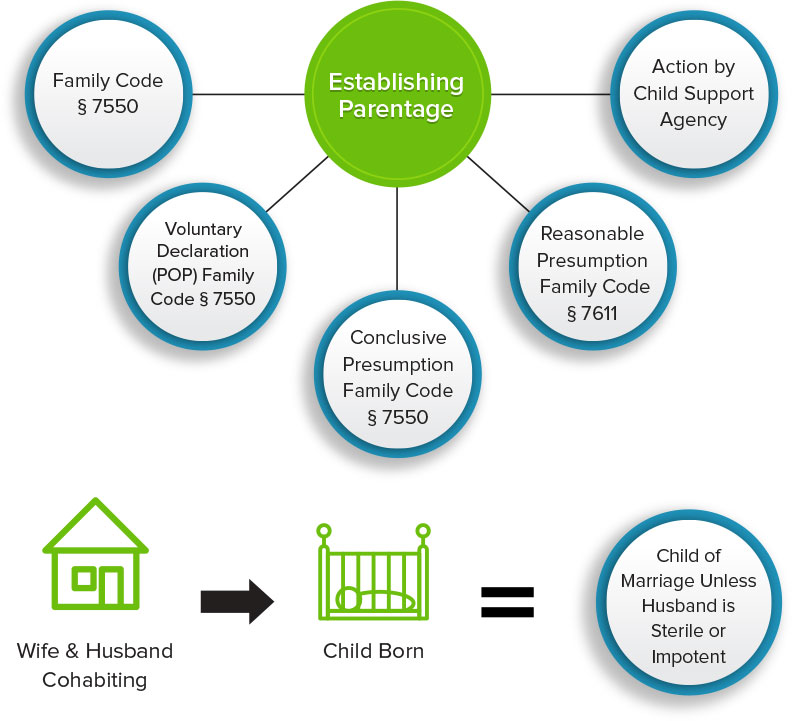Parentage Litigation (Paternity)
In What Courts Are Paternity Cases Heard?
Parentage litigation occurs in the family law courts, and the issues are determined using statutes, case law and a number of very important presumptions.
Parentage litigation includes a determination of paternity, child support and child custody.
Parentage Litigation (Paternity)
California laws relative to paternity are based on the Uniform Parentage Act (UPA), which was adopted in 1975, but are not limited to the provisions in the UPA.
Paternity laws are based, in part, on presumptions. For example, it is conclusively presumed that the child of a wife cohabiting with her husband, who is not impotent or sterile, is conclusively presumed to be a child of the marriage and this presumption may be applied against a man who is not the biological father of the child. A divorce or separation does not impact this conclusive presumption, and this presumption will be applied unless it would result in a bizarre and illogical outcome. This presumption will generally not be applied against the biological father in favor of the presumed father where there was no relationship between the child and the biological father.




